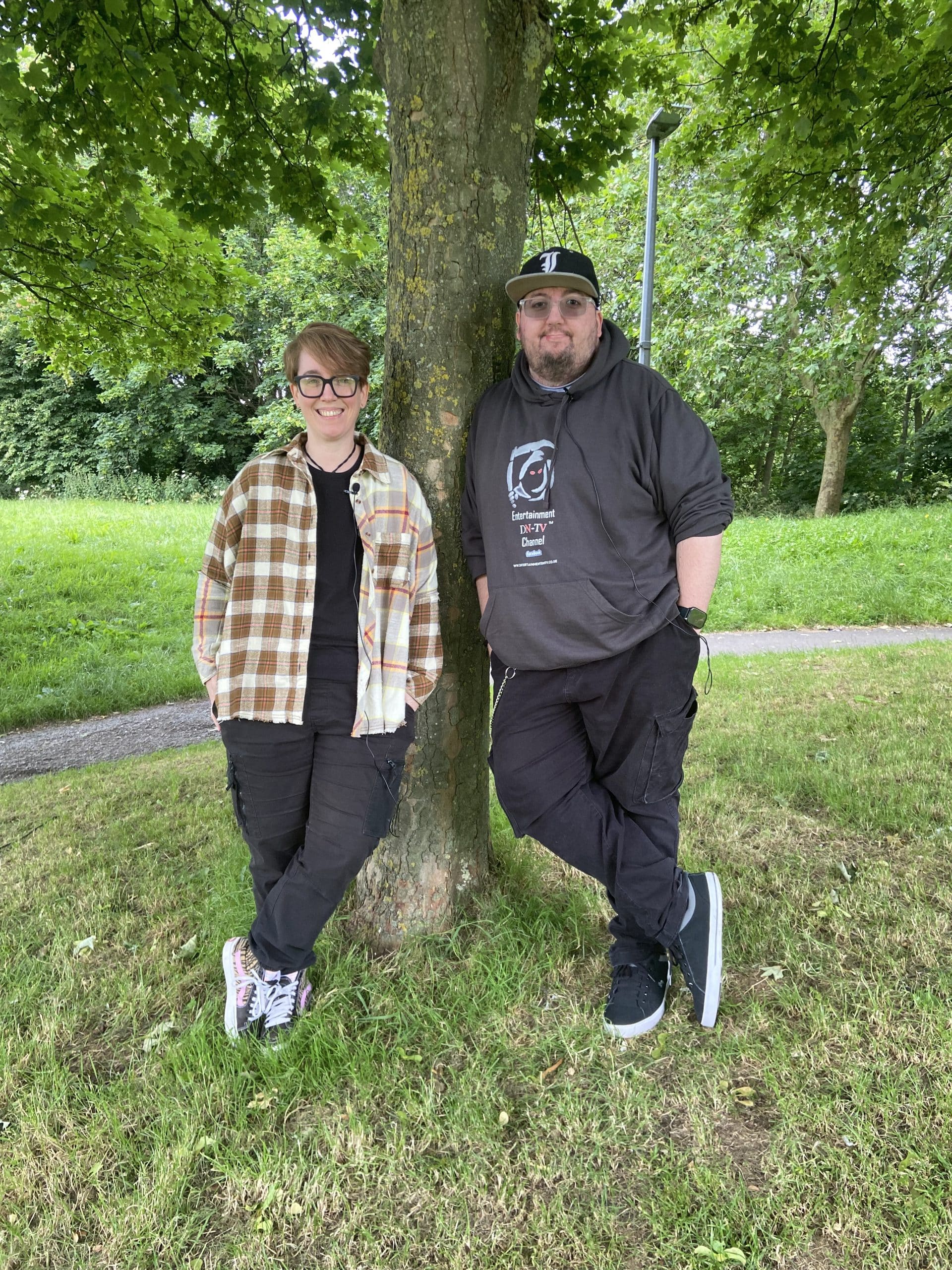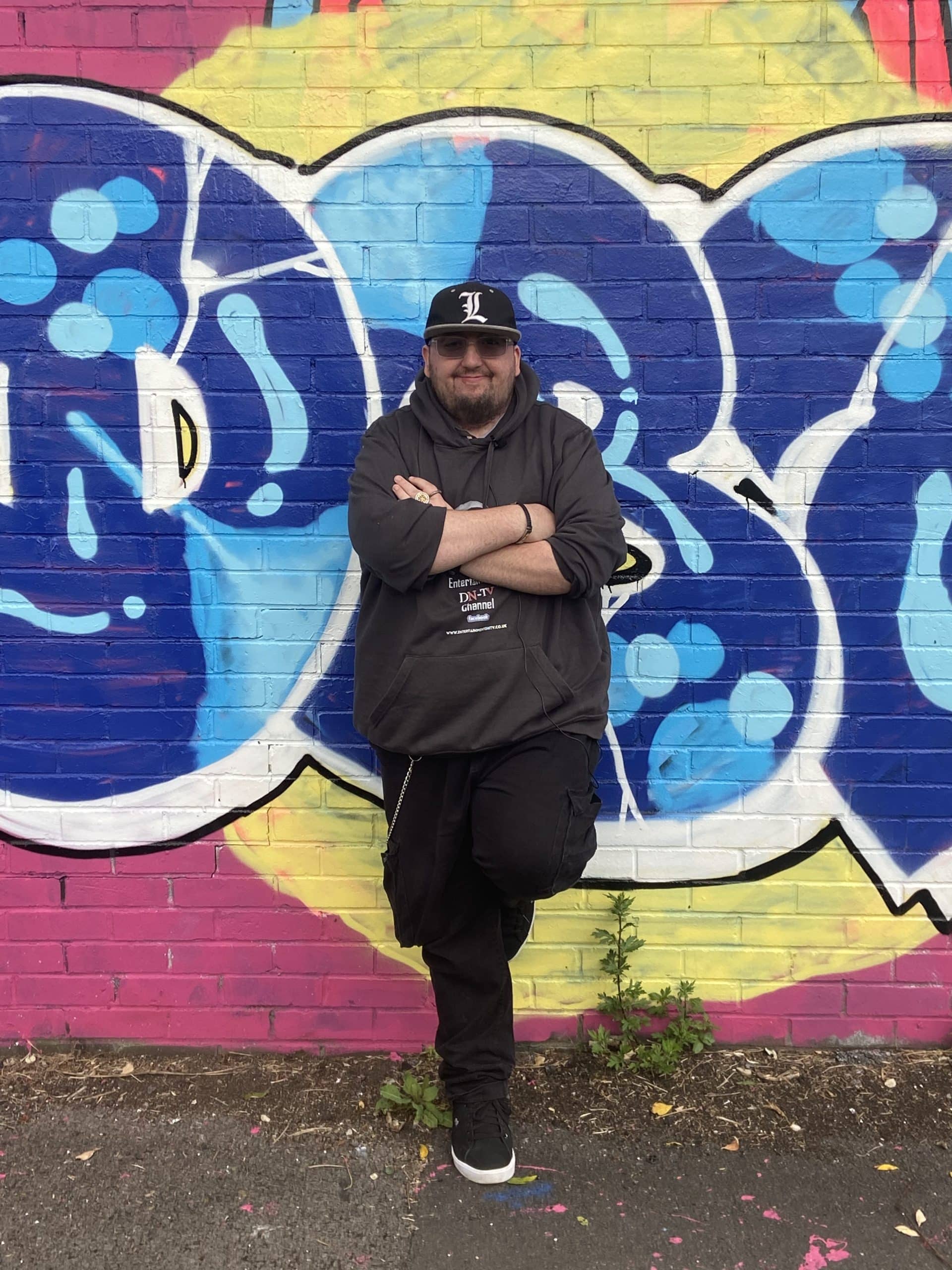From near homelessness to living independently: How Ezra and the Hope Project helped Drew achieve his goals
By Ezra Peregrine-Wheller, Hope Project worker
I think the most important part of our work within the Hope Project is working to each client’s individual needs, recognising that their journey is unique to them, as is what has brought them to us. Drew’s story is just that, it is as unique as is he.
I first met Drew at Temple Street Job Centre. Things had become too difficult for him at home and he needed to be rehoused into emergency accommodation. Drew shared that speaking with me was very difficult initially. He spoke openly about how he found connecting to, and trusting, others anxiety inducing because he’d been let down by services his whole life. He had been the target of bullying and meeting new people caused him to feel panicked.
In my experience, showing genuine empathy is what helps people such as Drew begin to relax and continue opening up, recognising that his experiences have been extremely hard and it’s not surprising that he finds trusting other people difficult.
Building trust
Before meeting with the housing worker, I reassured Drew that this was about him, his situation and his needs, and that he could take his time to share why he needed their support. I shared that if he needed to take some time to go for a walk, with me or alone, that was okay. This alleviated the pressure he was feeling to say or do certain things to get the help he needed.
Once Drew felt safe, he opened up and felt able to share his journey with the housing worker, which allowed them to understand and then implement the housing support he needed. Drew was emergency housed and from that point I continued to support Drew by having weekly calls or in-person sessions.
“Drew felt that I saw him and not his disability which was empowering.”
Initially we met at the office as Drew had shared that he needed a private, safe and quiet space to feel able to share his difficult experiences and trauma. Over a few weeks, Drew shared that he’d built up trust in me. He felt relieved that he’d finally begun to work with someone he felt able to share everything with without the fear of judgment or negative repercussions.
Drew shared with me that he has always had people see his disabilities before they see him. He has felt very judged, that people have misconceptions which then fuel limitations that they place onto him. But when working with me Drew felt that I saw him and not his disability which was empowering.
The importance of giving people space to talk about their passions
I feel it very important to look further than a person’s mental health difficulties, physical difficulties, or learning needs. I have seen the positives of giving people a space where they can talk freely about their passions, from YouTube, to football, to gaming. It doesn’t matter what it is, it matters that it is something they connect with, that allows them some respite from the complex issues they’re trying to manage daily.
“When supporting men’s mental health and wellbeing it is incredibly important to hear about their interests, to show interest and give them a space where they can talk about it.”
I have had many men tell me that interests like gaming, films, YouTube, music, are their saving grace. They take them somewhere ‘other than’ where they are most of the time, somewhere that’s safe. This is massively important to their wellbeing and often a protective factor. This tells me that when supporting men’s mental health and wellbeing, it is incredibly important to hear about their interests, to show interest and give them a space where they can talk about this. This is very true for Drew.
Drew’s passion is YouTube and once he began sharing this with me, I saw a shift in his mood. He was incredibly passionate. That passion both grounded him and lifted him, and he has since enjoyed telling me about his YouTube channel, which focusses on the Paranormal, his passion for being a Psychic Medium and where he is known as Mr Entertainment. This is a space for creative expression, where he has made friends and where he feels able to share his passion with others.

Tailoring support to Drew’s needs
We also talked through grounding exercises, especially when Drew was living in LOGOS house. He had fantastic support from staff here, and while it was a very difficult space for him, he showed unrelenting resilience and determination to keep on moving forward. The grounding exercises and meditation techniques were something that Drew found really useful, as well as me reminding him that there’s always support out there, from the staff at LOGOS, to me, to The Sanctuary and The Samaritans.
“Drew is now living independently for the first time in his life.”
Drew and I worked together for several months. During this time, I asked him what he would like support with and it was everything from accessing benefits, to supporting him to go shopping in busy public spaces, to helping him feel able to eat in coffee shops – things he felt unable to do because of his low self-esteem. Over time, Drew did all of these things. He is now living independently for the first time in his life. He is enjoying going shopping on his own, he is making more friends and has a lovely relationship with his son. He has also completed his Level 1 in mental health and is beginning to volunteer as a mentor with Second Step, something he is deeply passionate about.
Looking forward to a brighter future
Drew’s story reminds me that, when meeting any new client, it is so important to be human and to support them in feeling safe. Once they feel safe, they feel able to talk openly and often – we may be the first people they’ve ever felt able to do that with.
Drew has been on a huge journey, from near homelessness to independent living, and he has worked extraordinarily hard to achieve all his goals. His passion for life, his sense of humour, his friendliness, compassion for others, his never-ending dedication to make things better, has been inspirational to me and to others. I feel fortunate to have had the opportunity to support him, as well as all the gentlemen I have worked with.

About the Hope Project
Ezra works with the Hope Project, our male suicide prevention project which provides emotional and practical support to men aged 30-64 living in Bristol, North Somerset and South Gloucestershire who are in psychological distress due to their finances, housing or employment circumstances.
Find out more about the Hope Project here.
[Watch] Drew’s story: Breaking the stigma of ‘man up’
Watch Drew and Ezra talk about Drew’s experience with the Hope Project and how they worked together to help Drew reshape his future to one filled with hope, courage, laughter and trust.
Read next…
- Give yourself permission to have an imperfect Christmas
- A reminder to be kind to your mind this festive season
- “Supporting people with addictions and trauma is a privilege” – Kevin reveals how his personal experiences help him support others
- Grassroots groups – this is for you!
- “I used to climb mountains”: How Richard found new meaning in life after traumatic loss
